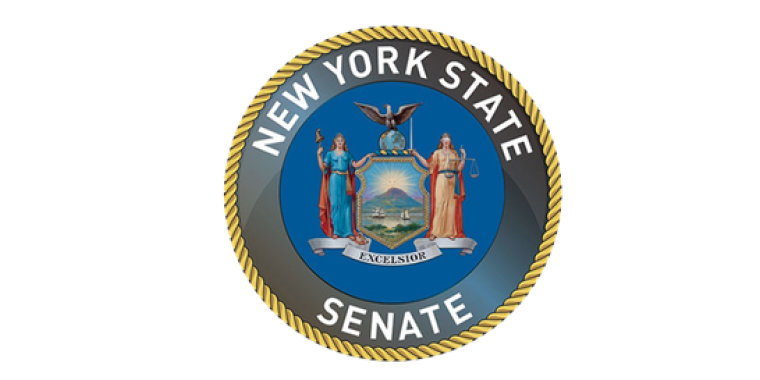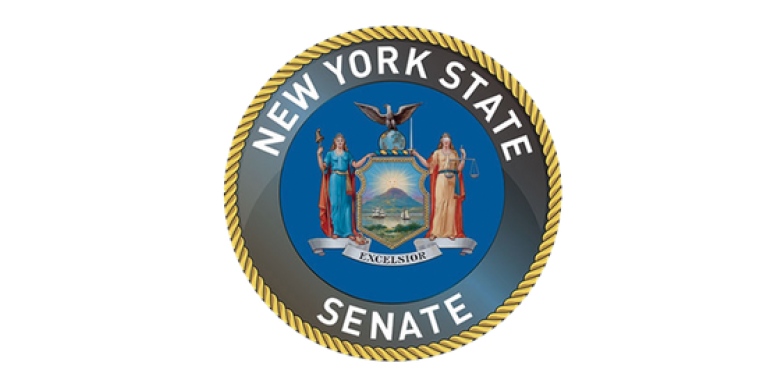
Serrano Backs Enviromental Enforcement In East Harlem
Albany, NY – New York State Department of Environmental Conservation (DEC) Commissioner Pete Grannis announced today that the Department, in cooperation with the City of New York, has been carrying out a major enforcement action to address urban outdoor air quality in a neighborhood that has suffered disproportionately from pollution.
The program – focusing on polluting diesel trucks and boilers – is centered on East Harlem , from 96th Street to 116 Street, and from FDR Drive to 5th Avenue (zip code 10029), where asthma hospitalization rates are four times the national average. It's also an area of considerable truck traffic.
This is the first time DEC has launched such a plan.
"Protecting the environment does not just mean watching over the wilderness and safeguarding lakes. It means looking out for urban neighborhoods as well," Commissioner Grannis said. "We call this our Stop Smoking Initiative for Trucks and Boilers. Just as cigarette smoke creates risk not only for smokers but also for those around smokers, polluting trucks and boilers put neighborhoods at risk, especially children."
The City of New York has joined DEC in this targeted enforcement sweep.
"DEP is fully committed to improving compliance of laws that seek to protect us from sources of outdoor air pollution. Our goal is to identify these sources, such as idling trucks and polluting boilers, and address them in a timely manner to reduce the impact on city residents," said New York City Department of Environmental Protection (DEP) Commissioner Emily Lloyd. "Under PlaNYC 2030, Mayor Bloomberg's ambitious sustainability plan, DEP is committed to cleaner air in New York City's neighborhoods."
Over the last two weeks, DEC law enforcement officers have been pulling over diesel trucks and issuing tickets to those that fail to comply with state emissions standards on emissions. So far, 311 trucks were pulled over and inspected, of which 110 trucks were found to be in violation of State air quality regulations. A total of 158 tickets were issued, including for violations not related to air quality standards. In addition, based on the work done so far, we can reasonably estimate that about 25 percent of all trucks moving through this neighborhood are in violation of air quality regulations, and there are thousands of trucks passing through the neighborhood each day.
As a second part of the initiative, DEC officers have been patrolling the neighborhood issuing tickets for trucks or buses illegally idling. The Department intends to work with fleet owners to get them to correct these problems.
Besides ticketing, DEC has placed an air monitoring unit on the grounds of Metropolitan Hospital, on the west side of First Avenue, between 97th and 99th streets, and will monitor the air in the area for two months.
NYC Department of Environmental Protection inspectors have been issuing tickets for boilers found emitting black smoke and polluting the neighborhood, and for illegally idling trucks. Promoting compliance with the city's strict three-minute limit on idling vehicles is a component of PlaNYC 2030, which includes 14 separate clean air initiatives.
Data from these enforcement actions will be used to develop a long-term strategy for addressing local outdoor air pollution sources in NYC and other urban areas. In this effort, DEC will join with the city and local organizations, including Manhattan Borough President Stringer's Go Green East Harlem Initiative, Community Board No. 11, West Harlem Environmental Action (WE ACT), and the Natural Resources Defense Council. The impacted neighborhood has an asthma hospital-discharge rate of 133 per 10,000 population. That is well above the national average (31 per 10,000), the state average (39/10,000) and city average (64/10,000). It is a compact area of 0.83 square miles, with two northbound and two southbound local truck traffic routes, and two east-west truck traffic routes.
"I applaud the state for focusing on this very serious problem and taking these preliminary steps towards improving the air quality for the residents of East Harlem,' said Senator Bill Perkins, who represents part of the neighborhood covered by the crackdown. "As an asthma sufferer myself, I know first-hand how these kinds of emissions can cause difficulties with breathing for asthma as well as non-asthma sufferers. Enforcement of these laws is long overdue and I look forward to the long-term implementation of them here and in other neighborhoods throughout the city. This is a matter of protecting our health and the health of our children."
"The residents of East Harlem have long felt the adverse effects of air pollution on their health and quality of life," said Senator José M. Serrano, who also represents parts of the neighborhood. "I am pleased that the Department of Environmental Conservation is cracking down on the worst polluters and sending the message that those who flout the regulations will not go unpunished."
"Commissioner Grannis has reinvigorated the DEC, and under his leadership we are seeing new and innovative ways that this agency can proactively protect our environment and our communities," Senator Liz Krueger said. "For far too long, those in government focused only on the negative environmental effects of excess pollutants, like sky-high childhood asthma rates in East Harlem, without ever getting to the root of the problem and fixing it. The DEC has moved from playing defense to playing offense in terms of environmental protection, literally taking their mission to the streets and holding polluters responsible for what they are doing to our communities."
"Enforcement is essential and I commend the DEC for making this a priority," said Manhattan Borough President Scott Stringer. "While New York City is making great strides in greening its fleets, including school buses and garbage trucks, incentives are badly needed to encourage environmental retrofitting of truck fleets by all municipalities and businesses. Truck traffic is a major cause of poor air quality and serious health problems. The technology already exists to dramatically reduce these emissions and government should take every opportunity to encourage its widespread use."
City Councilwoman Melissa Mark Viverito said: "As an elected official representing East Harlem , I commend the state and city for thinking outside of the box when it comes to addressing pollution in our communities. Stronger enforcement on all fronts will surely improve urban outdoor air quality. Idling buses and diesel truck exhausts that don't comply with state emission standards seriously hamper the quality of life in our neighborhoods and I thank the state and city for their decision to ensure greater enforcement.."
"It has taken decades of Environmental Justice activism to raise the awareness of policymakers about the impact of air pollution from diesel buses, trucks and boilers on the health of uptown communities shouldering the disparate burden of pollution," said Peggy Shepard, executive director and co-founder of WE ACT. "This is great to have a state and city administration that is being proactive in enforcing the law and improving public health."
"We support DEC's Stop Smoking Initiative for Trucks and Boilers by allowing use of Metropolitan Hospital Center grounds for air monitoring and testing purposes," said Meryl Weinberg, Executive Director, Metropolitan Hospital Center, part of New York City's Health and Hospitals Corporation (HHC). "Many of HHC's patients are neighborhood residents who disproportionately suffer from the effects of diesel exhaust and other pollutants. Anything we can do to lessen the incidence of asthma in New York City will only further HHC's and the Mayor's ultimate goal of improving public health."
"This effort will help find the dirtiest diesels on the road and persuade them to clean up their act," said Richard Kassel, Natural Resources Defense Council Clean Fuels and Vehicles Director. "Better maintenance is a simple solution that will lead to lower costs and less pollution, so it's a win-win for all."



